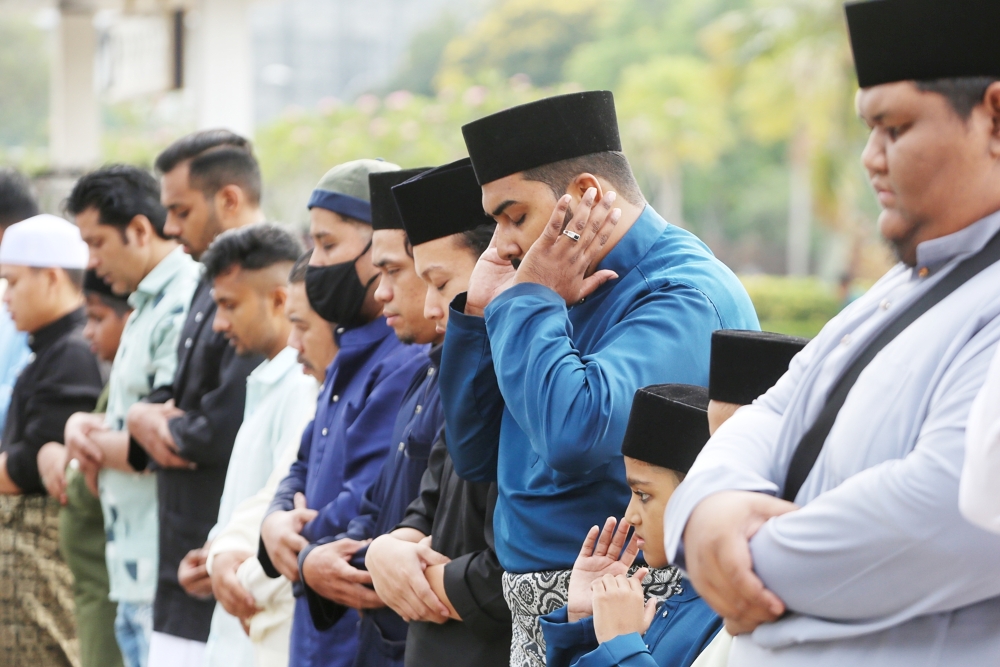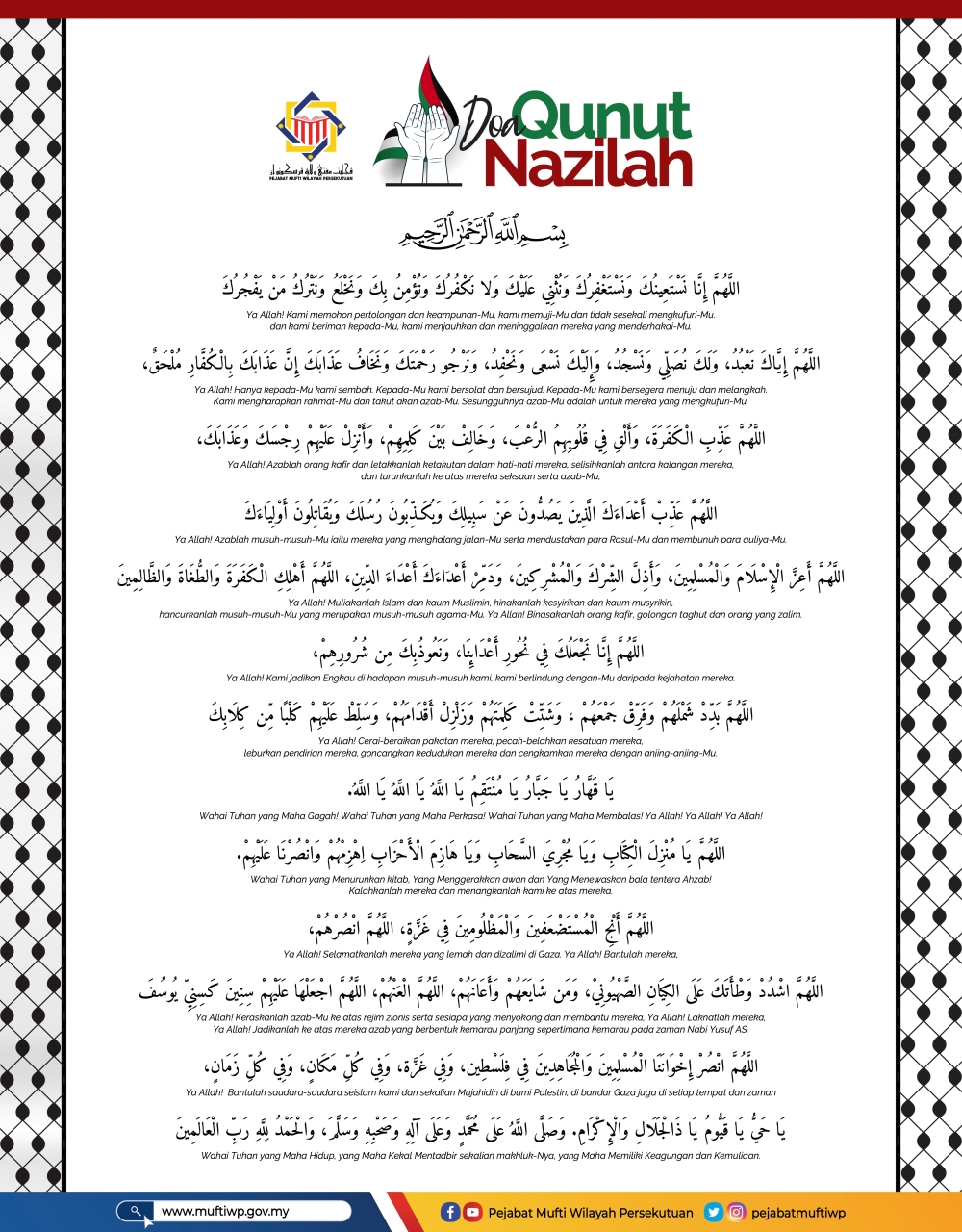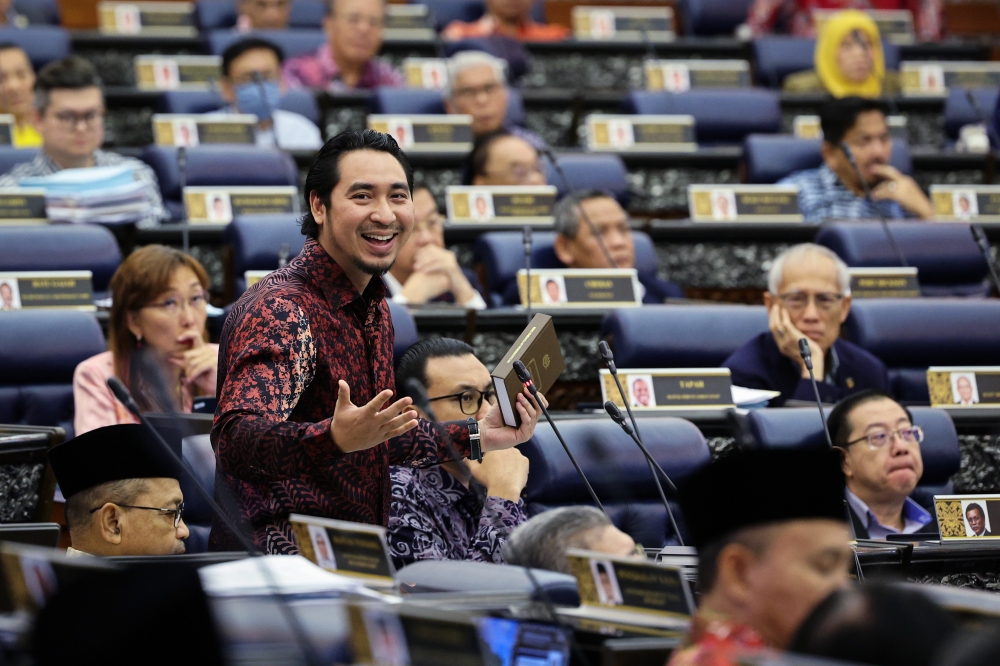KUALA LUMPUR, July 21 — Perikatan Nasional (PN) MPs were recently criticised for reciting a supplication called “Qunut Nazilah” in the Dewan Rakyat, after Machang MP Wan Ahmad Fayhsal Wan Ahmad Kamal was suspended for six months.
The move was seen by many as an abuse of Islam and the weaponisation of religion. Why was that so?
What is a ‘qunut’?
The word “qunut” in Arabic literally means “standing”. However, in Islamic practice, the “qunut” — also called “doa qunut” in Malay — is an act of supplication to God while standing.
There are two types of qunut:
- Qunut Ratibah — Recited on the last unit of prayer called raka’at, while still standing after performing i’tidal, and before proceeding to the sujud position. This is performed during the daily subuh prayer, and the witr prayer in the second half of Ramadan. It is considered “encouraged” or “recommended” — or “sunat” in Malay — although some Muslim minorities eschew its practice altogether.
- Qunut Nazilah — Recited during times of calamity or disaster, especially when it affects the Muslim community as a whole. This is considered at least "permissible" in Islam — or "harus" — and can even be “sunat” according to situations, according to former religious affairs minister Datuk Zulkifli Mohamad.

When does one recite the Qunut Nazilah?
The practice started with Prophet Muhammad reciting the Qunut Nazilah during prayers for a month, after an act of betrayal that resulted in 70 of his companions being murdered — as recorded in the hadith by Anas bin Malik and Abu Hurairah.
According to the office of the Federal Territories Mufti, one of the most common forms of Qunut Nazilah — based on the recitation of Caliph Abu Bakar during a war with the Nazarenes — is translated as such in English:
“O Allah, we ask for your help and forgiveness, we praise you and ask you to protect us from disbelief, give us firm faith in you, protect us from ever leaving you and disobedience.
O our Lord that we prostrate ourselves to, pray and obey, only towards you we are headed, we hope for your blessings and fear your punishments. O Allah, indeed your punishments are for those who disbelief, then punish the disbelievers with fear and disarray in their hearts.
Curse them and punish them; the disbelievers from among the people of the book who obstruct your road and deny your messengers, murder the prophets.
O Allah, forgive the believers, strengthen their unity and place in their hearts; belief and wisdom, maintain their faith in the religion of your messenger, and bless them with steadfastness in their belief in your promise and help them against your enemies. O the All True God, make us from among those you help.”
In recent times, the Qunut Nazilah was recited by Muslims here as a supplication for:
- Seeking divine protection from the Covid-19 pandemic
- In solidarity Palestinians facing atrocities from Israeli military forces in Gaza
The office of the Federal Territories Mufti had also released a special version of the Qunut Nazilah to be recited for the sake of Palestinians:

Why was the Qunut Nazilah recited in Dewan Rakyat?
It was recited by several PN MPs after Wan Ahmad Fayhsal was suspended for six months. The Parti Pribumi Bersatu Malaysia MP had cited a poison pen letter, which mentioned an alleged mastermind behind Malaysia Airport Holdings Bhd’s (MAHB) share deal.
The recital was led by Zulkifli Ismail, the Jasin MP from Islamist party PAS.
PN proponents claimed that the Qunut Nazilah was recited in solidarity with Palestinians, as the MAHB deal had previously been linked with BlackRock — reported as the world’s biggest asset manager with huge investments directly in Israel. This direct link with BlackRock has been denied by Putrajaya.
However, this move also followed a TikTok clip from an anti-government account that recited the Qunut Nazilah while urging the public to pray for the downfall of Prime Minister Datuk Seri Anwar Ibrahim and his administration.
The Department of Islamic Development Malaysia (Jakim) has since filed a report with the Malaysian Communications and Multimedia Commission (MCMC) against the social media post.

What do authorities say about the Qunut Nazilah in Parliament?
The move was criticised by Home Minister Senator Datuk Seri Saifuddin Nasution Ismail, who questioned the weaponisation of Islamic practice against political opponents:
“The incident happened yesterday in Parliament. So, was it directed at Israel in Gaza or what? Reciting Qunut Nazilah immediately after a parliamentary decision because they disagreed with the suspension of an MP, which was decided through parliamentary processes, is an example of extreme political practice.
“This is not an Islamic practice. Therefore, the context and the situation make it clear who the prayer was directed at. I urge Malaysians to view this matter with a clear mind and to understand that political differences should not be equated with differences in faith or belief, especially among Muslims.”
According to scholar Abu Hafiz Salleh Hudin from the International Islamic University Malaysia, PN MPs’ use was alarming as it deviated from the original purpose and was directed against fellow Muslims.
“When the Qunut Nazilah was read in Parliament after the suspension of the Machang MP, to whom was the prayer directed? Was it intended for fellow Muslims?
“Are other Muslims considered enemies of Islam? This raises concerns.”
Perlis Mufti Datuk Mohd Asri Zainul Abidin also referred to the matter on his Facebook page, saying:
“Prayer is offered in a state of surrender and humility by a servant. What resides in a servant’s heart when praying is only complete hope in the Almighty Allah alone, not in anyone else.
“Therefore, prayer is not for showing off to others, much less for politicking. This is because no one can fulfil prayers except Allah alone.”



















